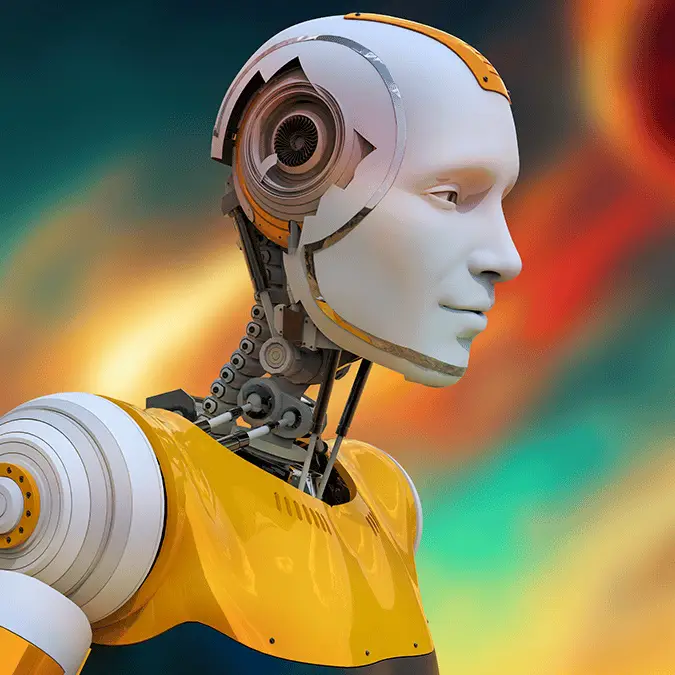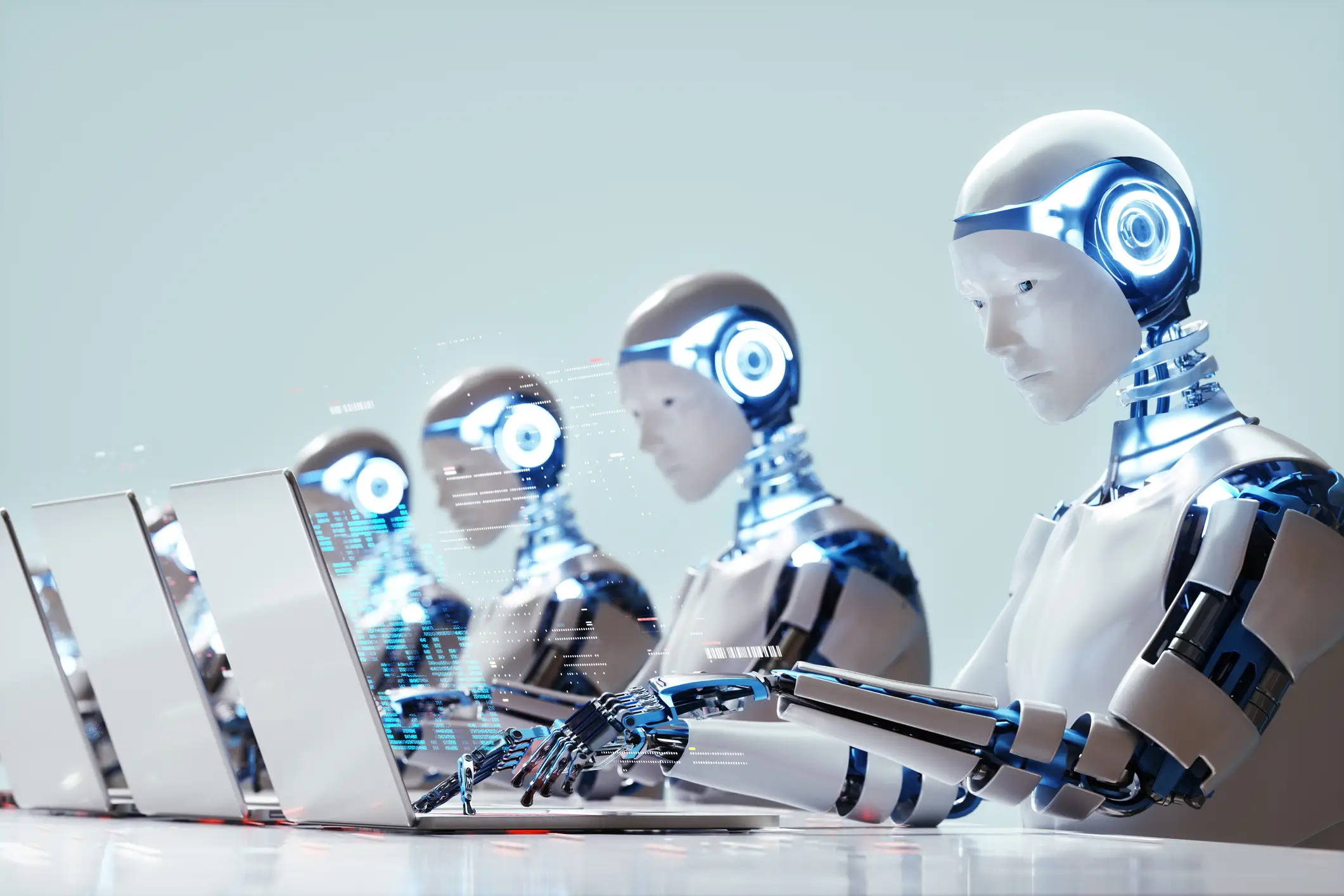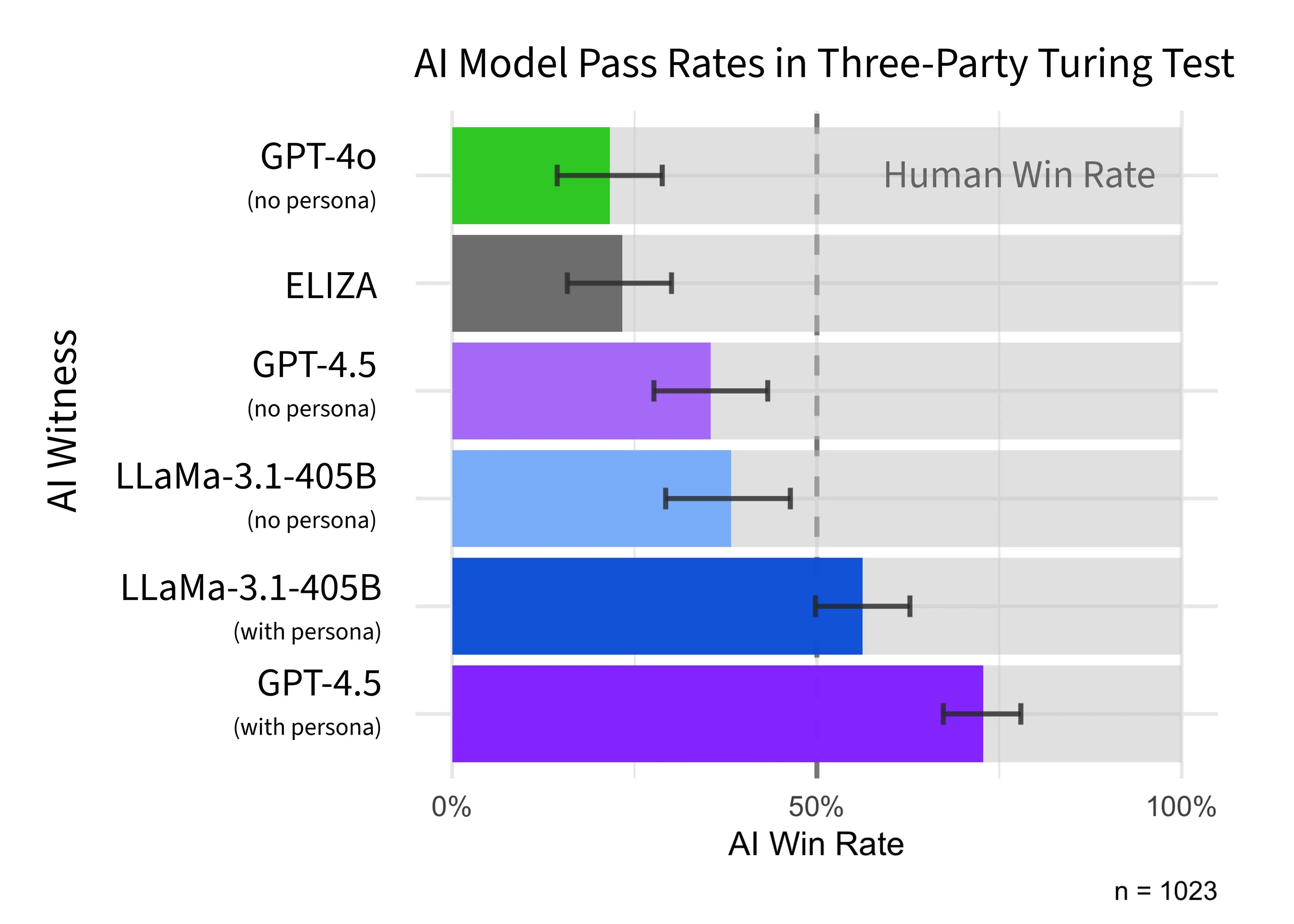
The future might just be upon us, as a new study details the worries that scientists have regarding the intelligence of AI against humans, as newest models were able to pass an 'eerie' test that seemed impossible before.
Having to distinguish between man and machine always feels like something that would be found exclusively in futuristic science fiction, but fears put forward by The Terminator and Blade Runner's Voight-Kampff test might just be closer than we think.
If you've not already heard of the Turing Test - otherwise known originally as the 'Imitation Game' - it was designed by Alan Turing in 1950 as a means to test a machine's ability to appear indistinguishable from humans in conversation.
Many have interpreted it as a test of intelligence, and designing an AI model that passes this particular test consistently is arguably a major step in achieving what's commonly known as artificial general intelligence (AGI).
Advert

While many experts within the industry have predicted that this point is at least a couple of years away, a new study published in arXiv by researchers at UC San Diego shows that current technology has already reached this point.
As reported by the New York Post, the study outlines that OpenAI's GPT-4.5 model performs exceptionally well in a 3-party setup of the Turing Test, where a participant is faced with a real human and the AI model simultaneously, and has to figure out which is which in a short amount of time.
"Participants had 5 minute conversations simultaneously with another human participant and one of these systems before judging which conversational partner they thought was human.
"When prompted to adopt a humanlike persona, GPT-4.5 was judged to be human 73% of the time: significantly more often than interrogators selected the real human participant."

GPT-4.5 proved to be the most successful model that was tested, as similar AI such as Meta's LLaMa-3.1-405B (56%), early natural language program ELIZA (23%), and GPT-4o (21%) were less convincing.
Intriguingly, there was a significant difference between the success rates of both GPT-4.5 and LLaMa-3.1-405B when they weren't specifically asked to operate with a humanlike person.
LLaMa dropped to a 'win rate' of 47.1%, whereas GPT-4.5 fell significantly from the aforementioned 73% win rate with a human persona to 42.1% without one, showing how well it's able to replicate the language and behavior of a human when asked.
When discussing the implications of this discovery, co-author of the paper Cameron Jones speculated in a post on X:
"More pressingly, I think the results provide evidence that LLMs could substitute for people in short interactions without anyone being able to tell," he illustrated. "This could potentially lead to automation of jobs, improved social engineering attacks, and more general societal disruption."
Bill Gates only recently speculated that there are just three jobs that are completely safe from AI, and with enhancements like these on display it's hard not to be worried.
There is, as Jones mentions, the worries of 'social engineering attacks', and these have already proven to be be extremely effective. Scammers have used AI to extort money in fake romantic relationships - to the point where one human handed over hundreds of thousands of dollars after believing that she was speaking to Brad Pitt.
If you fancy seeing if you're capable of distinguishing between human and AI then thankfully they've set up an online version of the test for you to try out. Having done it myself, it's dangerously similar - although I was able to emerge 'victorious' thanks to my human's inability to ask me how I was doing - AI would never be so impolite!
